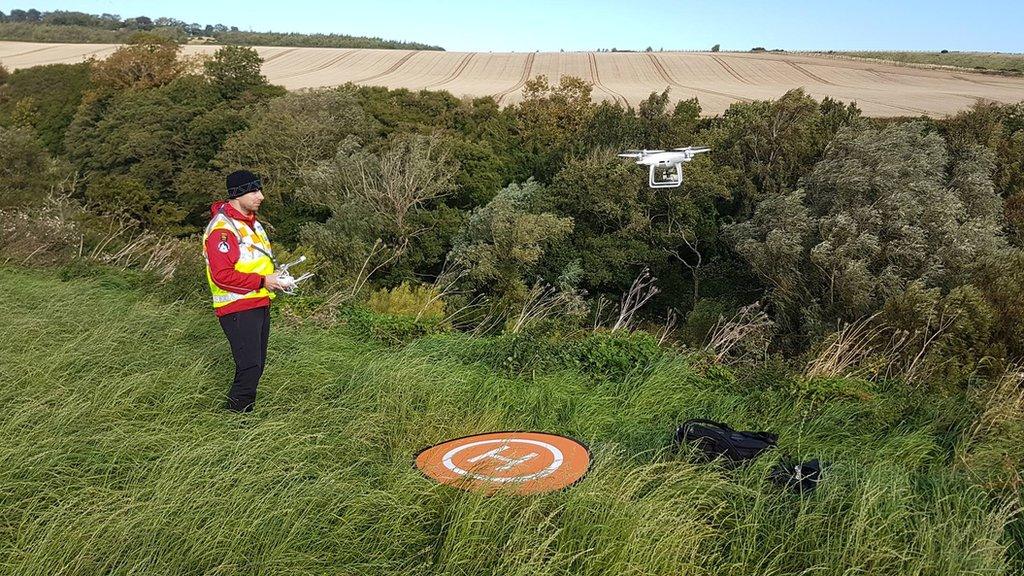Aberdeen medical student hopes drones could help mountain rescues
- Published
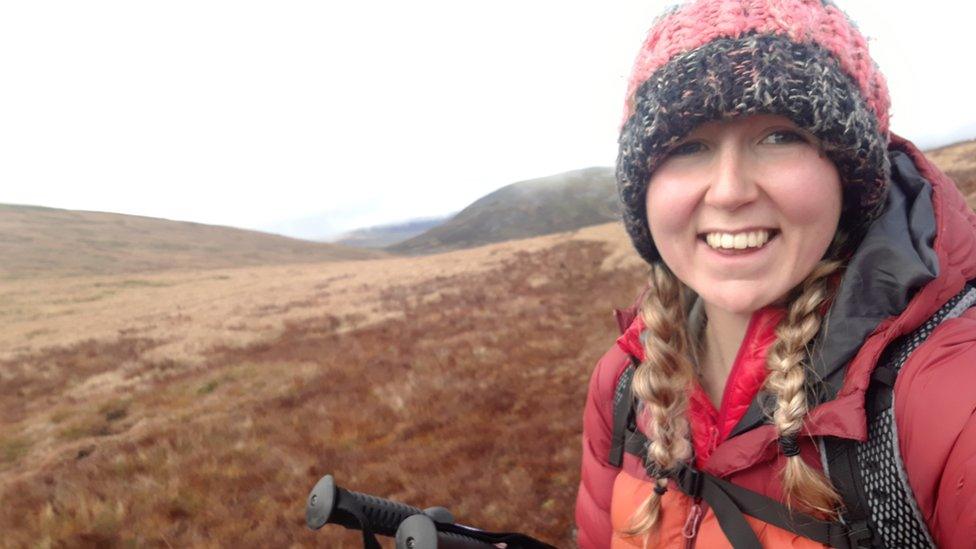
Medical student Sophie Barrack is herself an outdoors enthusiast
A student is investigating if drones could provide emergency aid to walkers and climbers in hills and mountains.
Medical student Sophie Barrack from the University of Aberdeen has built a prototype.
It followed a survey she sent to mountain rescue organisations and NHS workers receiving positive feedback.
The outdoors enthusiast then designed the drone and now plans to test if it can carry the weight of emergency items, such as medication.
Ms Barrack, 23, from Auchterarder in Perthshire, believes the drone could offer potentially crucial medical help before the arrival of rescue teams.
Search and Rescue Aerial Association Scotland (SARAA-Scotland) formally joined Scottish Mountain Rescue (SMR) in 2018.
The team use drones in the search for missing people, but Sophie hopes to establish whether or not her drone could carry the necessary weight of medical equipment - and still fly accurately - in a range of Scottish weather conditions.
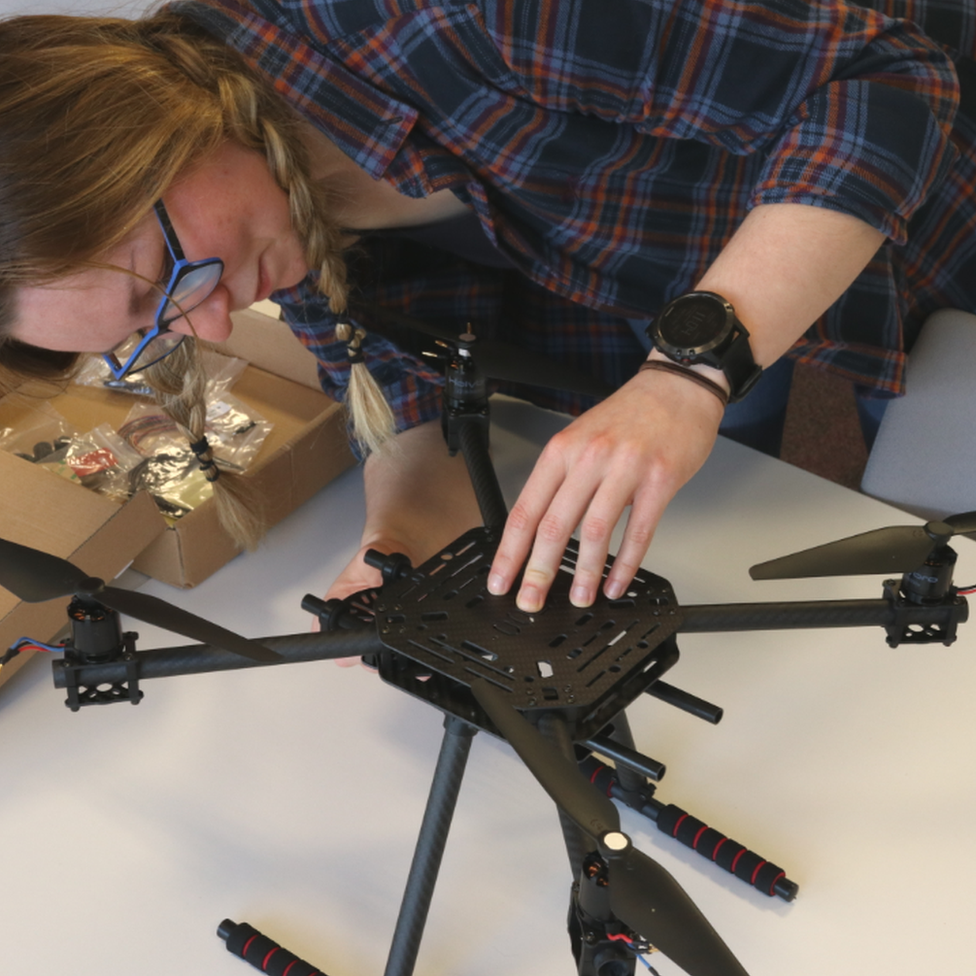
The medical student plans to test the drone

Equipment could include a defibrillator, alongside supplies such as painkillers.
'Great to explore'
Ms Barrack said: "My main interest was in finding out whether healthcare and mountain rescue workers thought a drone could be used to deliver essential medication and equipment in remote areas, which - according to my survey - they do.
"The building of the drone was a bit of an afterthought but if nothing else it adds a physical element to the project which can hopefully kickstart discussions, as well as giving us an idea as to how big and powerful a drone would be required."
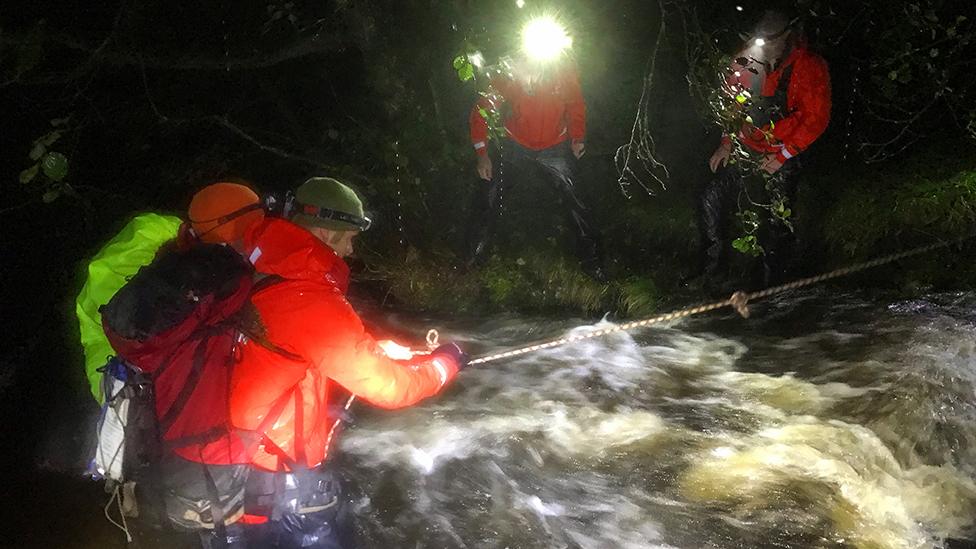
Mountain rescuers can face difficult conditions to reach casualties
She explained: "Drones have been used to locate missing people in remote areas, so it would be great to explore if they could be used for delivering small amounts of medication or equipment to climbers or walkers in trouble quickly while a mountain rescue team attempts to reach them.
"Mountain Rescue and other related services are still absolutely crucial, but if there was a way to get some initial aid to the patient quickly, could that potentially lead to better outcomes? These are the kinds of questions I am interested in."
Her lecturer Dr Heather Morgan added: "It was really exciting to work with Sophie because we both shared an ambition to take this project beyond the background desk research into existing drones for health around the globe."
- Published18 September 2020
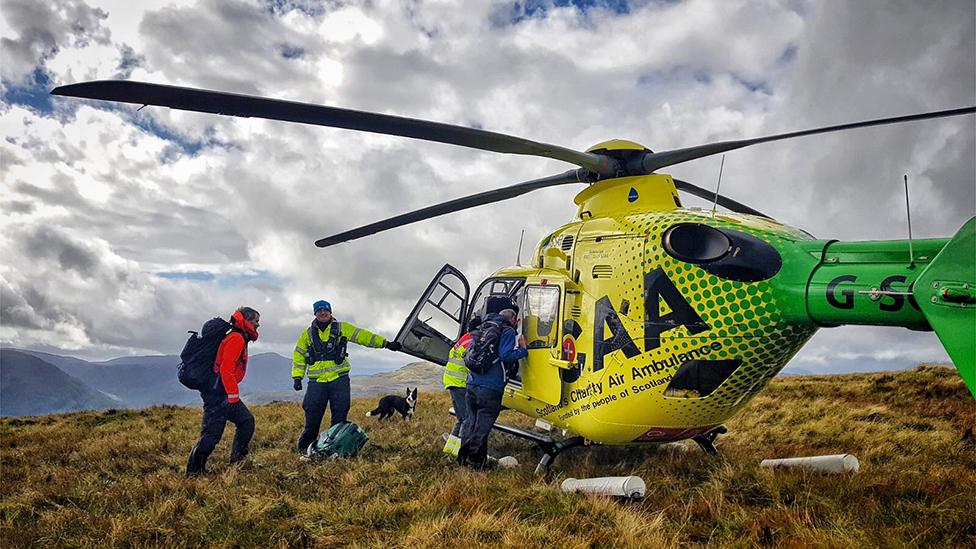
- Published31 July 2020
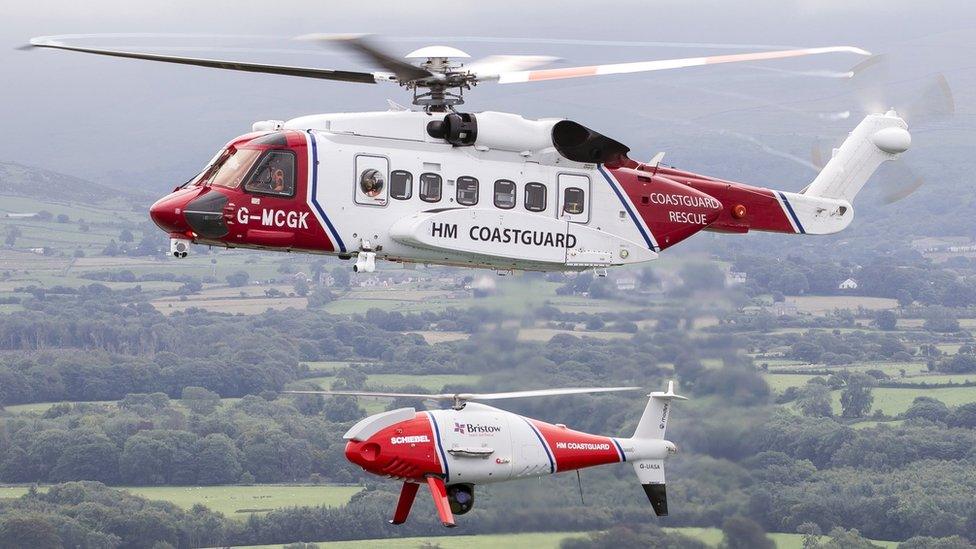
- Published26 October 2018
